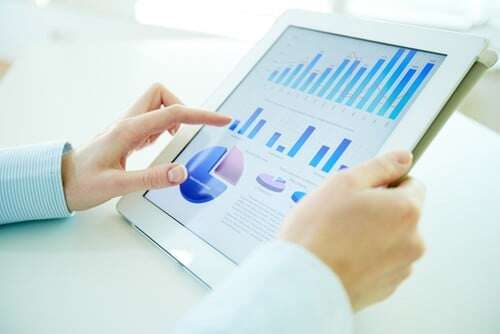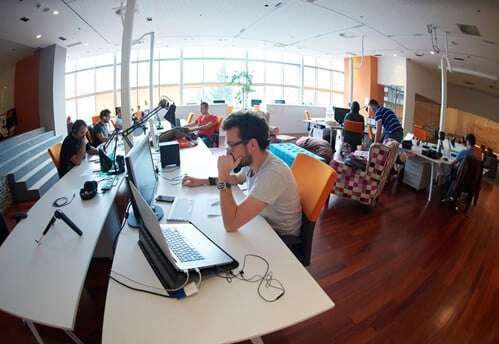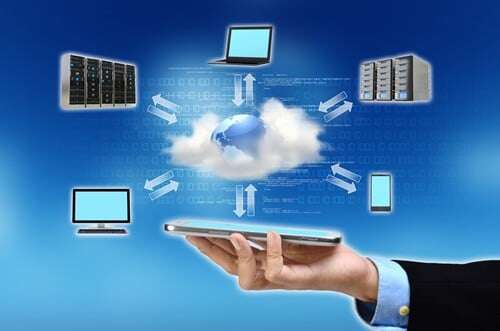CRM versus ERP: What are the differences?

It’s pretty incredible to think that there are at least 5 million businesses in the U.S. alone, yet virtually every one of them is unique in its own way. However, there are a few things that organizations have in common. One of those shared goals is the genuine desire to succeed, in whatever form that may present itself, whether it’s profitability, productivity or delivering a good or service that buyers go out of their way to purchase.
While customer relationship management (CRM) and enterprise resource planning (ERP) software may not guarantee success, these advanced technological systems do make the daily affairs aimed at achieving it go more smoothly by bringing greater visibility into various mission-critical work processes. From analyzing purchasing patterns among a certain segment of customers to processing orders and invoices, both CRM and ERP programs help centralize core functionalities so nothing gets missed and everyone stays on the same page – quite literally in some cases, depending on the user interface.
If you’re at all familiar with CRM and ERP, you know that they have similar capabilities, such as reducing redundancies and creating reports, one is more “behind the scenes” in terms of its back-office management purposes, while the other is for processes dealing directly with customers.
Here is a little more about each so you can compare the two and see whether CRM, ERP – or both – is right for you:
CRM
As the “C” in CRM more or less implies, these software solutions are designed to help you as a business owner learn more about the individuals that ultimately determine the fate of your company: the customer. Much like organizations, customers are unique in terms of their needs and what causes them to turn from casual observers or perusers into actual buyers. It can thus be difficult to determine the best way to interact with them. CRM helps manage the customer acquisition, support and service processes with the ultimate goal of turning more leads into customers, better servicing existing customers and thus generate more sales.
As noted by CIO, here are a few of the front-office processes that most CRM software solutions include:
- Forecasting management
- Order confirmation and fulfillment
- Purchasing pattern analysis
- Customer support (e.g. complaints, referrals, inquiries, etc.)
- Ongoing account management
ERP
Whereas “C” is the operative letter in CRM in terms of what these software solutions do for businesses, “P” is the most germane to ERP: planning. ERP is designed to streamline business processes and all the planning that goes along with it so it’s more manageable, such as supply chain management, project planning, payroll, inventory tracking, distribution and financial transaction journaling. In short, CRM handles functions that are pertinent primarily to sales – things that are front and center – ERP addresses back-office tasks, or what’s behind the scenes. These capabilities may also include the following:
- Financial Reporting
- Accounts receivable
- Accounts payable
- Supply Chain Management
- Manufacturing
Although both CRM and ERP solutions are not exactly new, they’ve come a long way from a leveragability standpoint, thanks largely to cloud computing. The world has gone mobile, as tablets, smartphones and laptops are omnipresent and allow individuals and businesses to log on wherever they are. Prior to the cloud, organizations could only access important business-related information and data by being on location, meaning on the site of wherever their data was stored. The cloud has revolutionized data collection and management because it can be entered, culled and organized instantaneously. Many of today’s most popular CRM and ERP solutions are cloud-based so key personnel can enter relevant data in real time.
Which should you choose: ERP or CRM?
Choices are abundant when it comes to ERP and CRM software bundles. Even though the similar-yet-different programs perform in similar ways and boast overlapping capabilities, deciding the best one for you can be decidedly difficult, especially if you’re operating on a budget.
Perhaps the best way to resolve this is by somehow combining the two. You can with Microsoft Dynamics 365 Business Central (ERP) and/or Customer Engagement (CRM). For many years, Microsoft Dynamics has been the gold standard in CRM/ERP for businesses of all shapes and sizes. Although you can purchase independent modules – such as Sales, Human Resources, Accounting and Field Service – you can also buy it as an entire package to take full advantage of your data, or as Microsoft says, “See the whole picture.”
Implementation and integration, however, can be complicated if you want Microsoft Dynamics configured to best fit your organization’s requirements. Let us at The TM Group guide you through this process as your Microsoft Dynamics partner. Whether you want both CRM and ERP or only need the a line of business portion like Sales Profession of Microsoft Dynamics 365, The TM Group has the experience, tenacity and capacity to empower your organization with the state-of-the-art technology that can help your organization thrive in a data-driven world. Please contact us to learn more.
Sources:
https://www.sysco-software.com/crm-vs-erp/
https://www.cio.com/article/3253564/crm-vs-erp-whats-the-difference-and-which-do-you-need.html
https://www.sherweb.com/blog/dynamics-365/difference-erp-crm/


